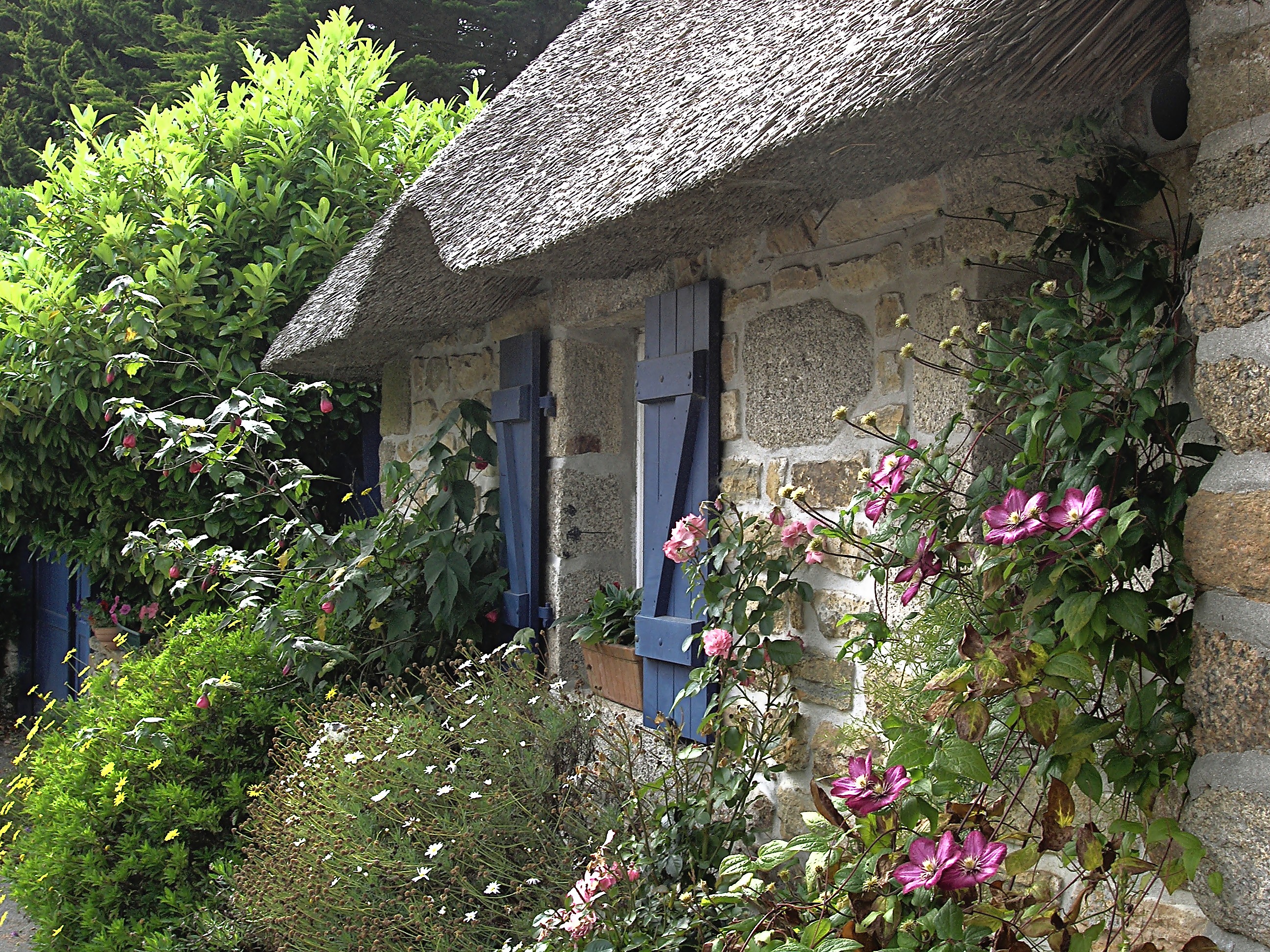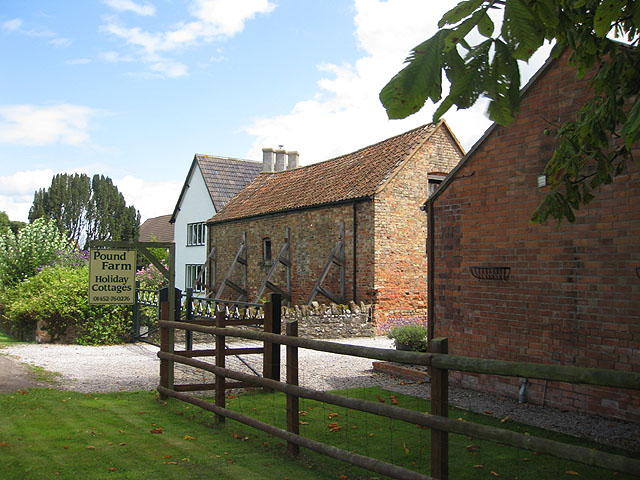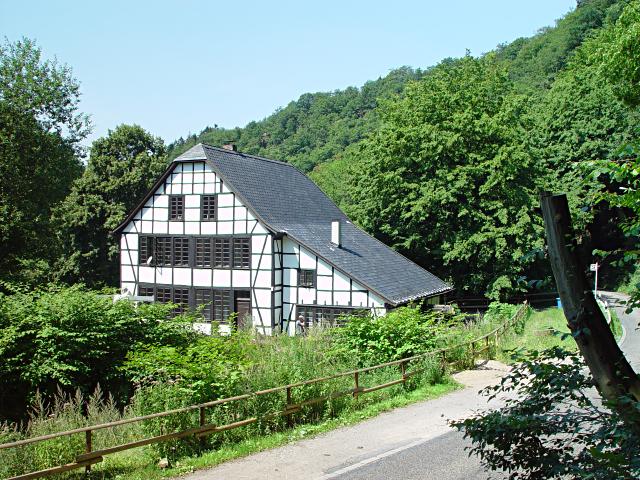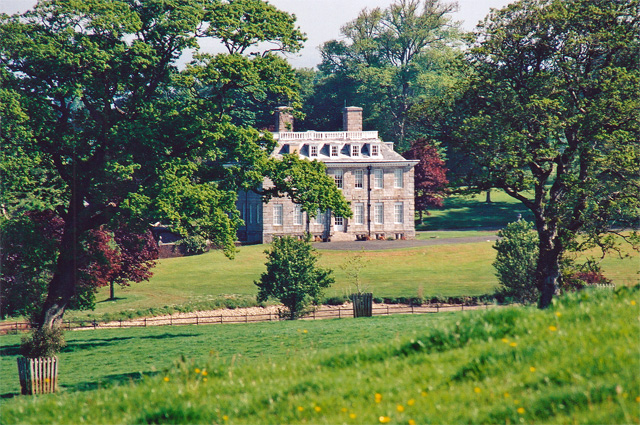|
Cottages
A cottage, during Feudalism in England, England's feudal period, was the holding by a cottager (known as a cotter or ''bordar'') of a small house with enough garden to feed a family and in return for the cottage, the cottager had to provide some form of service to the manorial lord.Daniel D. McGarry, ''Medieval history and civilization'' (1976) p 242 However, in time cottage just became the general term for a small house. In modern usage, a cottage is usually a modest, often cosy dwelling, typically in a rural or semi-rural location and not necessarily in England. The cottage orné, often quite large and grand residences built by the nobility, dates back to a movement of "rustic" stylised cottages of the late 18th and early 19th century during the Romantic movement. In British English the term now denotes a small dwelling of traditional build, although it can also be applied to modern construction designed to resemble traditional houses (" mock cottages"). Cottages may be d ... [...More Info...] [...Related Items...] OR: [Wikipedia] [Google] [Baidu] |
Tied Cottage
In the United Kingdom, a tied cottage is typically a dwelling owned by an employer that is rented to an employee: if the employee leaves their job they may have to vacate the property; in this way the employee is tied to their employer. While the term originally applied mainly to cottages, it may be loosely applied to any tied accommodation from a small flat to a large house. The concept is generally associated with agriculture, but may occur in a wide range of occupations. The concept has been in use at least since the 18th century. There has been considerable debate, particularly in the 20th century, over whether the system is fair to occupiers, and a number of laws have been enacted or amended to improve their security of tenure. The concept still exists, though in a substantially different form from the original idea. History Partly as a result of the Enclosure Acts of the 18th and 19th centuries, which denied free access by working-class people to common land, rural people b ... [...More Info...] [...Related Items...] OR: [Wikipedia] [Google] [Baidu] |
Cottage Garden
The cottage garden is a distinct style that uses informal design, traditional materials, dense plantings, and a mixture of ornamental and edible plants. English in origin, it depends on grace and charm rather than grandeur and formal structure. Homely and functional gardens connected to cottages go back centuries, but their stylized reinvention occurred in 1870s England, as a reaction to the more structured, rigorously maintained estate gardens with their formal designs and mass plantings of greenhouse annuals. The earliest cottage gardens were more practical than today's, with emphasis on vegetables and herbs, fruit trees, perhaps a beehive, and even livestock. Flowers, used to fill spaces, gradually became more dominant. The traditional cottage garden was usually enclosed, perhaps with a rose-bowered gateway. Flowers common to early cottage gardens included traditional florists' flowers such as primroses and violets, along with flowers with household use such as calendula and ... [...More Info...] [...Related Items...] OR: [Wikipedia] [Google] [Baidu] |
Holiday Cottage
A holiday cottage, holiday home, vacation home, or vacation property is accommodation used for holiday vacations, corporate travel, and temporary housing often for less than 30 days. Such properties are typically small homes, such as cottages, that travelers can rent and enjoy as if it were their own home for the duration of their stay. The properties may be owned by those using them for a vacation, in which case the term second home applies; or may be rented out to holidaymakers through an agency. Terminology varies among countries. In the United Kingdom this type of property is usually termed a ''holiday home'' or ''holiday cottage''; in Australia, a ''holiday house/home'', or ''weekender''; in New Zealand, a ''bach'' or ''crib''. Characteristics and advantages Today's global short-term vacation property rental market is estimated to be worth $100 billion. The holiday cottage market in both Canada and the UK is highly competitive – and big business. Numbers United ... [...More Info...] [...Related Items...] OR: [Wikipedia] [Google] [Baidu] |
Cottage Orné
Cottage orné () dates back to a movement of "rustic" stylised cottages of the late 18th and early 19th centuries during the Romantic movement, when some sought to discover a more natural way of living as opposed to the formality of the preceding Baroque and Neoclassical architectural styles. English Heritage define the term as "A rustic building of picturesque design." They often feature well-shaped thatch roofs with ornate timberwork. England In England, cottage orné were often built by the landed wealthy either as rustic retreats for themselves or as embellishments for their estates. They were not necessarily cottages in the usual sense of a small dwelling for the rural poor: examples range from the cluster of retirement cottages built by a Bristol banker for his retired staff at Blaise Hamlet to the expansive Royal Lodge, built by king George IV for his own use. Houghton Lodge, Hampshire, is a fine example witbeautiful gardens The cottage orné is the archetypal "chocolate ... [...More Info...] [...Related Items...] OR: [Wikipedia] [Google] [Baidu] |
Cotter (farmer)
Cotter, cottier, cottar, or is the German or Scots term for a peasant farmer (formerly in the Scottish Highlands for example). Cotters occupied cottages and cultivated small land lots. The word ''cotter'' is often employed to translate the recorded in the Domesday Book, a social class whose exact status has been the subject of some discussion among historians, and is still a matter of doubt. According to Domesday, the were comparatively few, numbering fewer than seven thousand people. They were scattered unevenly throughout England, located principally in the counties of Southern England. They either cultivated a small plot of land or worked on the holdings of the . Like the , among whom they were frequently classed, their economic condition may be described as free in relation to everyone except their lord. A cottar or cottier is also a term for a tenant who was renting land from a farmer or landlord. Scotland Cottars were between a third and a half of the rural populat ... [...More Info...] [...Related Items...] OR: [Wikipedia] [Google] [Baidu] |
Yealmpton
Yealmpton () is a village and civil parishes in England, civil parish in the England, English county of Devon. It is located in the South Hams on the A379 road, A379 Plymouth to Kingsbridge road and is about from Plymouth. Its name derives from the River Yealm that flows through the village. At the 2001 census, it had a population of 1,923, falling to 1,677 at the United Kingdom Census 2011, 2011 census. There is an electoral ward of the same name. The population of this ward in 2011 was 2,049. Yealmpton is home to a 400-year-old stone cottage, where it is said a version of the famous rhyme Old Mother Hubbard was written. It is also the site of Kitley Caves, including the now closed Kitley Show Cave, where green marble was quarried; there is an arch of it in the British Museum. John Pollexfen Bastard (1756–1816) a British Tory politician, landowner and colonel of the East Devonshire Militia, lived at Kitley House, Yealmpton. Parish church The parish church is dedicated to S ... [...More Info...] [...Related Items...] OR: [Wikipedia] [Google] [Baidu] |
Medieval Latin
Medieval Latin was the form of Literary Latin Classical Latin is the form of Literary Latin recognized as a Literary language, literary standard language, standard by writers of the late Roman Republic and early Roman Empire. It was used from 75 BC to the 3rd century AD, when it developed ... used in Roman Catholic Western Europe during the Middle Ages. In this region it served as the primary written language, though local languages were also written to varying degrees. Latin functioned as the main medium of scholarly exchange, as the liturgical language of the Roman Catholic Church, Church, and as the working language of science, literature, law, and administration. Medieval Latin represented a continuation of Classical Latin and Late Latin, with enhancements for new concepts as well as for the increasing integration of Christianity. Despite some meaningful differences from Classical Latin, Medieval writers did not regard it as a fundamentally different language. There i ... [...More Info...] [...Related Items...] OR: [Wikipedia] [Google] [Baidu] |
Old English
Old English (, ), or Anglo-Saxon, is the earliest recorded form of the English language, spoken in England and southern and eastern Scotland in the early Middle Ages In the history of Europe, the Middle Ages or medieval period lasted approximately from the late 5th to the late 15th centuries, similar to the post-classical period of global history. It began with the fall of the Western Roman Empire .... It was brought to Great Britain by Anglo-Saxon settlement of Britain, Anglo-Saxon settlers in the mid-5th century, and the first Old English literature, Old English literary works date from the mid-7th century. After the Norman conquest of 1066, English was replaced, for a time, by Anglo-Norman language, Anglo-Norman (a langues d'oïl, relative of French) as the language of the upper classes. This is regarded as marking the end of the Old English era, since during this period the English language was heavily influenced by Anglo-Norman, developing into a phase know ... [...More Info...] [...Related Items...] OR: [Wikipedia] [Google] [Baidu] |
Old French
Old French (, , ; Modern French: ) was the language spoken in most of the northern half of France from approximately the 8th to the 14th centuries. Rather than a unified language, Old French was a linkage of Romance dialects, mutually intelligible yet diverse, spoken in the northern half of France. These dialects came to be collectively known as the , contrasting with the in the south of France. The mid-14th century witnessed the emergence of Middle French, the language of the French Renaissance in the Île de France region; this dialect was a predecessor to Modern French. Other dialects of Old French evolved themselves into modern forms ( Poitevin-Saintongeais, Gallo, Norman, Picard, Walloon, etc.), each with its own linguistic features and history. The region where Old French was spoken natively roughly extended to the northern half of the Kingdom of France and its vassals (including parts of the Angevin Empire, which during the 12th century remained under Anglo-No ... [...More Info...] [...Related Items...] OR: [Wikipedia] [Google] [Baidu] |
Middle Low German
Middle Low German or Middle Saxon (autonym: ''Sassisch'', i.e. "Saxon", Standard High German: ', Modern Dutch: ') is a developmental stage of Low German. It developed from the Old Saxon language in the Middle Ages and has been documented in writing since about 1225/34 ('' Sachsenspiegel''). During the Hanseatic period (from about 1300 to about 1600), Middle Low German was the leading written language in the north of Central Europe and served as a lingua franca in the northern half of Europe. It was used parallel to medieval Latin also for purposes of diplomacy and for deeds. Terminology While ''Middle Low German'' (MLG) is a scholarly term developed in hindsight, speakers in their time referred to the language mainly as (Saxon) or (the Saxon language). This terminology was also still known in Luther's time in the adjacent Central German-speaking areas. Its Latin equivalent was also used as meaning 'Low German' (among other meanings). Some languages whose first contacts ... [...More Info...] [...Related Items...] OR: [Wikipedia] [Google] [Baidu] |
Old Norse
Old Norse, Old Nordic, or Old Scandinavian, is a stage of development of North Germanic languages, North Germanic dialects before their final divergence into separate Nordic languages. Old Norse was spoken by inhabitants of Scandinavia and their Viking expansion, overseas settlements and chronologically coincides with the Viking Age, the Christianization of Scandinavia and the consolidation of Scandinavian kingdoms from about the 7th to the 15th centuries. The Proto-Norse language developed into Old Norse by the 8th century, and Old Norse began to develop into the modern North Germanic languages in the mid-to-late 14th century, ending the language phase known as Old Norse. These dates, however, are not absolute, since written Old Norse is found well into the 15th century. Old Norse was divided into three dialects: Old West Norse, ''Old West Norse'' or ''Old West Nordic'' (often referred to as ''Old Norse''), Old East Norse, ''Old East Norse'' or ''Old East Nordic'', and ''Ol ... [...More Info...] [...Related Items...] OR: [Wikipedia] [Google] [Baidu] |
Clergy House
A clergy house is the residence, or former residence, of one or more priests or ministers of religion. Residences of this type can have a variety of names, such as manse, parsonage, rectory or vicarage. Function A clergy house is typically owned and maintained by a church, as a benefit to its clergy. This practice exists in many denominations because of the tendency of clergy to be transferred from one church to another at relatively frequent intervals. Also, in smaller communities, suitable housing is not as available. In addition, such a residence can be supplied in lieu of salary, which may not be able to be provided (especially at smaller congregations). Catholic clergy houses in particular may be lived in by several priests from a parish. Clergy houses frequently serve as the administrative office of the local parish, as well as a residence. They are normally located next to, or at least close to, the church their occupant serves. Partly because of the general conservat ... [...More Info...] [...Related Items...] OR: [Wikipedia] [Google] [Baidu] |









